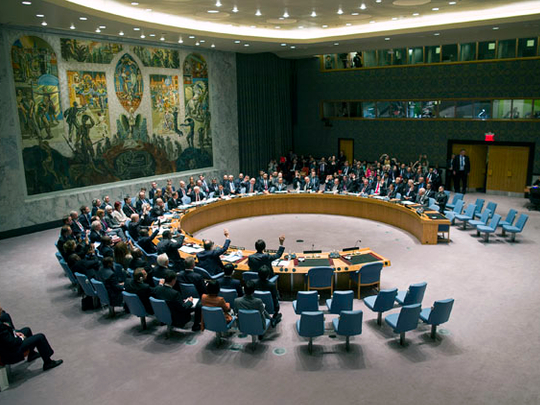
New York: Proposals for a new set of development goals for the UN, intended to shape national and international policies for raising living standards, have been criticised by the Copenhagen Consensus Centre, the think-tank founded by Danish environmentalist Bjorn Lomborg.
A group of 32 economists who reviewed the proposals concluded that many targets were either excessively vague or too expensive to meet, according to an analysis published by the Copenhagen centre.
The previous targets, the Millennium Development Goals, were agreed in 2000 with objectives for 2015, and UN member countries are now working on a new set to replace them, to be announced in September next year. The new objectives, known as the sustainable development goals, were discussed by representatives of UN member states called the Open Working Group, which came out with its proposals in July.
They included 17 goals and 169 separate targets.
Ameenah Mohammad, the UN’s assistant secretary-general, wrote in a recent opinion piece in the Japan Times that the proposals were “a momentous step”, breaking new ground with the “breadth and depth” of the goals they set out. However, the academic economists canvassed by the Copenhagen centre suggested that while many of the proposed targets were worthwhile, including ending restrictions in agricultural trade and ensuring access to reproductive health services, many others were questionable.
Sustainable development
Some goals, such as having universal social protection systems, fighting substance abuse or offering equal access to vocational or university education, would be very expensive relative to the benefits they offered. Others, such as “ensuring all learners acquire knowledge and skills needed to promote sustainable development” were difficult to define precisely and hence unlikely to be effective, the centre said.
Some, such as the one for sustainable tourism, focus attention on a specific area that the economists said would be better handled by a more general economy-wide objective. The first proposed goal, to “end poverty in all its forms everywhere” was unrealistically ambitious, Lomborg said.
He pointed out that where the Millennium Development Goals had 18 targets set out in 374 words, the working group’s proposals for the sustainable development goals used 4,369 words to set out its 169 targets. “If you want to do a lot of good for the world, you have to write clear, realistic goals,” he said.
Jeffrey Sachs, director of the Earth Institute at Columbia University, who is an adviser to the UN on development, said there was “more analysis and negotiations ahead” before the goals were finally agreed.
Financial Times












